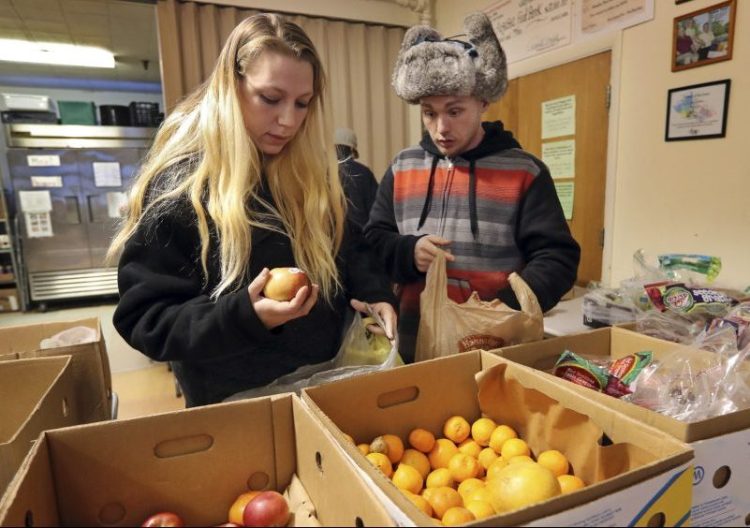Hunger is getting no better here in Maine while it improves across the country, and although everyone should be angry, no one should be surprised.
To Gov. LePage, a few free meals a month has a corrupting influence on poor Mainers. Take those away, he says, and people will have no choice but to pull themselves out of poverty.
But that’s not what’s happening. Instead, it turns out that making sure low-income Mainers have less money to spend on food means that more of them end up hungry.
Who could have guessed?
The Supplemental Nutrition Assistance Program – SNAP, formerly food stamps – is one of the most effective anti-poverty initiatives because it is so simple and direct. Recipients are given a modest monthly stipend that can be spent only on food, and that is crucial in pulling Americans drowning in hardship just above the water.
In Maine, where so many people are living paycheck to paycheck, or sporadically employed, just one emergency away from a full-blown crisis, SNAP has helped a lot of people with one of the essentials of life.
But LePage has instituted a number of barriers under the guise of fiscal responsibility. He declined to seek federal waivers for Maine for SNAP’s work requirement and asset test – both mandates that the U.S. government has been willing to suspend in the past, recognizing that the economy remains depressed in parts of the state.
These requirements sound reasonable, but in practice they hurt Mainers. People are not as easily categorized as LePage’s changes suggest, so cutting out broad categories of Mainers, and implementing other bureaucratic roadblocks, often delays or denies benefits for Mainers who actually qualify.
What’s more, taking the benefits away doesn’t magically erase the need. If LePage’s plan was for all the people he kicked off SNAP to find another way to feed themselves, it’s clearly not working.
A recent report from the U.S. Department of Agriculture found that 12.3 percent of American households are food insecure, meaning that they do not have enough food for a healthy, active lifestyle. That includes the 4.9 percent who have very low food security, meaning that members of these households have been forced to skip meals.
That’s down from the high of 2011, when the troubles caused by the recession reached their peak.
Maine, however, is one of 15 states where food insecurity is worse than the national average – 16.4 percent of households on average from 2014 to 2016.
And while most of the country has been improving, the state has actually seen a small increase in hunger since 2011-13.
Meanwhile, the state’s food pantries are setting new records for the number of people served each year, with Good Shepherd Food Bank, the state’s largest charity food supplier, experiencing huge increases since 2011. Once emergency sources of food, they have become a foundational resource – families use them month after month, year after year, to fill permanent shortcomings in their cupboards and refrigerators.
That’s an indication not that Mainers are too lazy to go find good jobs, but that something structural is keeping so many from getting the food they need just to get by.
Cutting SNAP – and withholding millions in federal funds for job training and other initiatives that help poor Maine residents, as LePage has also done – won’t fill those structural gaps. It will only make them deeper.
Send questions/comments to the editors.


